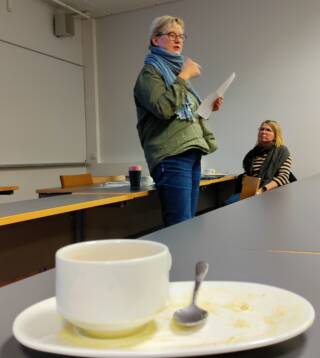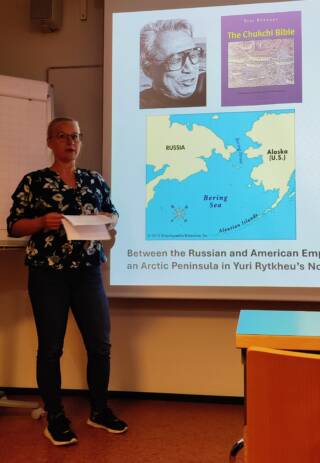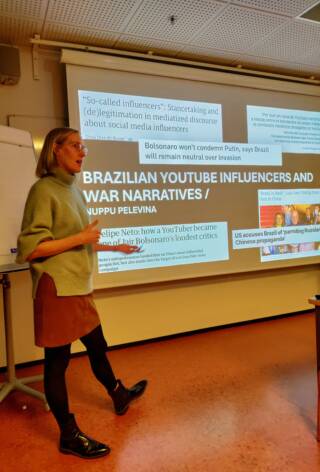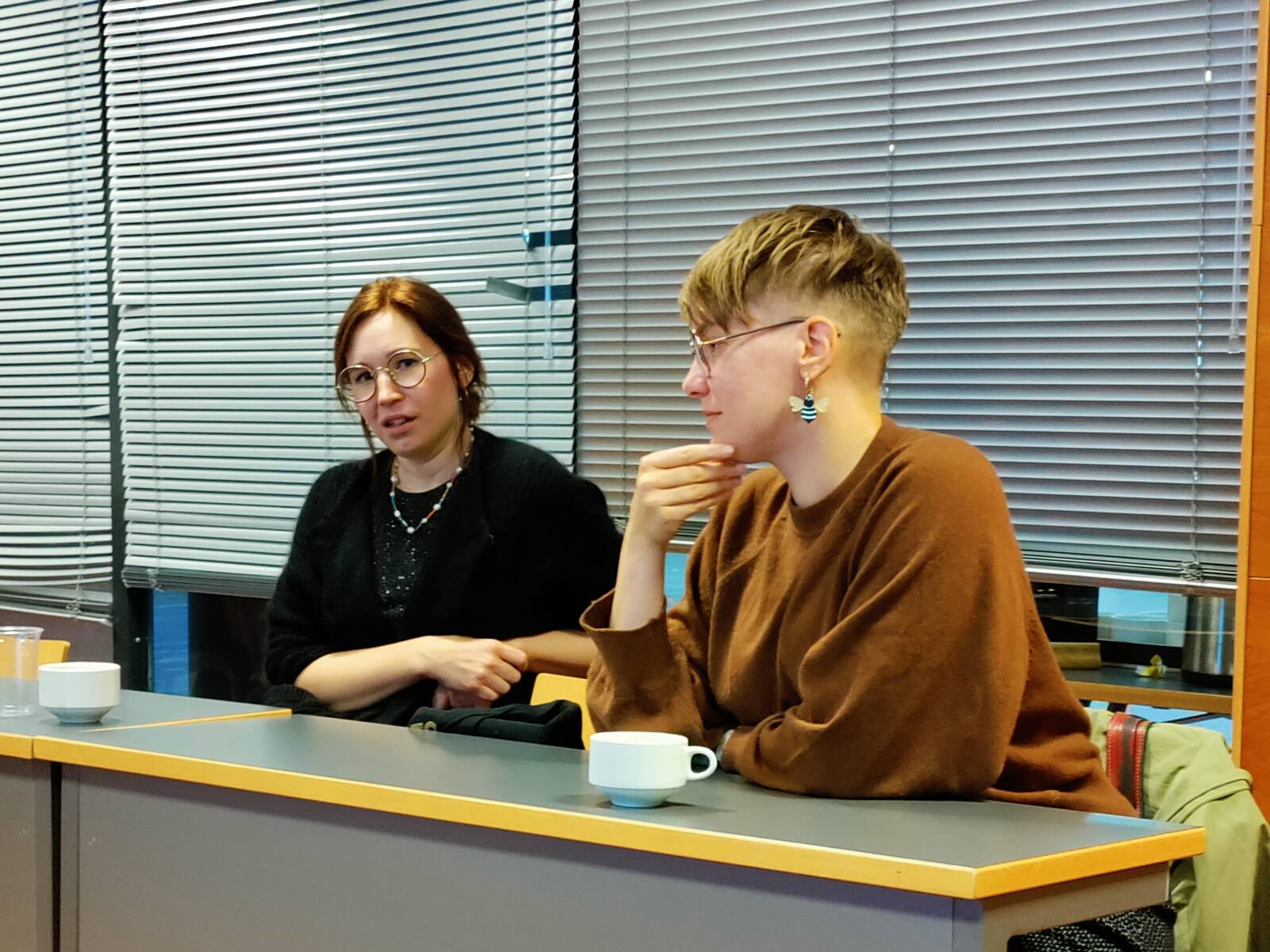It can be said that the seminar, titled Media, Culture and Geopolitics, was somewhat overdue as it was the first joint meeting for the TaRC network since spring 2023.
Not that the community has been at a standstill since then. Preparations for the launch of the new research centre Taru (of which TaRC is a part at Tampere University) and developing its day-to-day activities have kept us busy, and individual researchers have been working on their own projects as usual.
No wonder, then, that there was a lot to discuss together during a Friday afternoon packed with presentations and book launch news.

Of the latter, we heard two pieces of good news. First, Professor Sanna Turoma presented the forthcoming edited volume Culture and Geopolitics: Narrating Eurasian Worlds (publisher: Lexington; editors: Sigrid Kaasik-Krogerus, Saara Ratilainen, and Sanna Turoma).
The volume examines the interaction of culture and geopolitics in Eastern Europe, Russia and Eurasia from the viewpoint of feminist geopolitics, mundane geopolitics, ecocritical geopolitics and other theoretical frames of critical and popular geopolitics.
Second, Professor Emeritus Kaarle Nordenstreng and his research team are also applying finishing touches to their edited volume Television News Coverage in 11 Countries of Russia’s Invasion of Ukraine (publisher: Lexington; editors: Kaarle Nordenstreng, Aaron Hyzen, Hilde van den Bulck, and Svetlana Pasti).
This book builds on the research group’s condensed report published in 2023. Using quantitative and qualitative content analysis as its method, the volume investigates the flagship TV news bulletins’ coverage of the war in 11 countries during the first eight weeks of the Russian invasion.
TaRC congratulates all of its members and others who have contributed to these timely volumes! The publications are expected late this year and in early 2025.
On top of the book news, we also heard four nice presentations showcasing the variety of topics and approaches among TaRC scholars.

In her presentation, Between the Russian and American Empires: The Sense of Place of an Arctic Peninsula in Yuri Rytkheu’s Novel The Chukchi Bible, Eeva Kuikka discussed how Rythkeu’s novel creates its own “subaltern geopolitical narrative” by re-writing the history of his people. In the novel, myths and local/dominant histories are woven together to find a place (of resistance) for the Chukchi.
Elise Kraatila and Riikka Pirinen continued in Finnish by looking at the narrative structures employed by Finnish news media in their coverage of Finland’s recent NATO accession. They observed among journalists a “collective epiphany,” which was manifested in emotional tropes that tried to evoke national unity by referring to historical events such as the Winter War during World War II. Based on the number of questions from the audience, it seemed evident that the study had touched upon an important topic!
If the first two presentations evoked indirect discussion about the impacts of the current Russo-Ukrainian war, the last two were focusing directly on them.

First, Nuppu Pelevina’s presentation Brazilian YouTube Influencers and War Narratives investigated the way in which the war was discussed by Brazilian YouTubers. Their narratives differed from the Russian, Ukrainian and Western ones and were heavily influenced by Brazil’s colonial history.
Finally, Kaarle Nordenstreng presented some of the results of the ongoing book project. Of greatest interest to the audience seemed to be the different approaches in story angles. There were notable differences between countries as to whether the main focus of the news bulletins was on Russia (in Russia and China), Ukraine (in Qatar), the home country (particularly in Finland, India, and Italy), or balanced between different angles (in the UK and Germany).
Following the presentations, it was no surprise that the war, and its direct and indirect impacts, featured frequently as a potential topic in the discussions about potential future co-operation.
The researchers’ different approaches were seen as a fruitful starting point for future collaborations. Some early ideas were already drafted during the afternoon, and hopefully these can be converted into tangible publications and project applications as time goes on.
As always, we will keep you updated on the developments!

